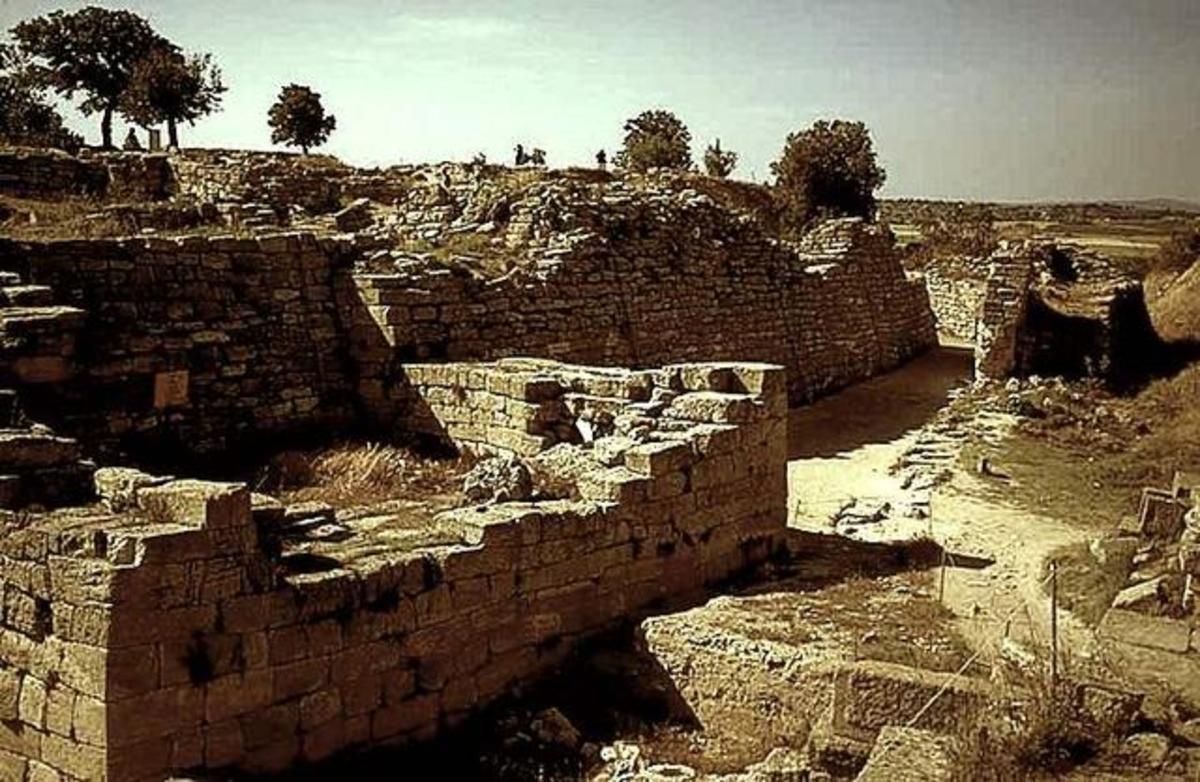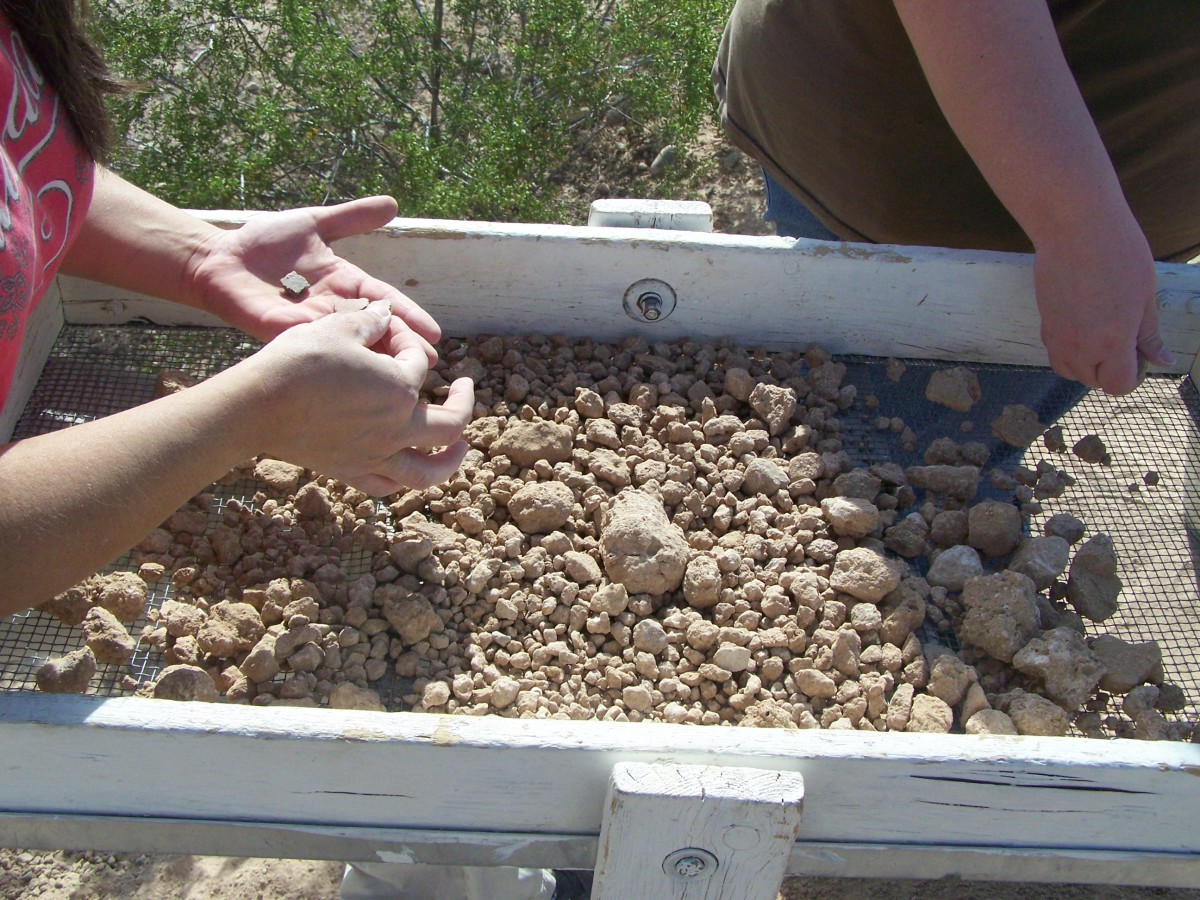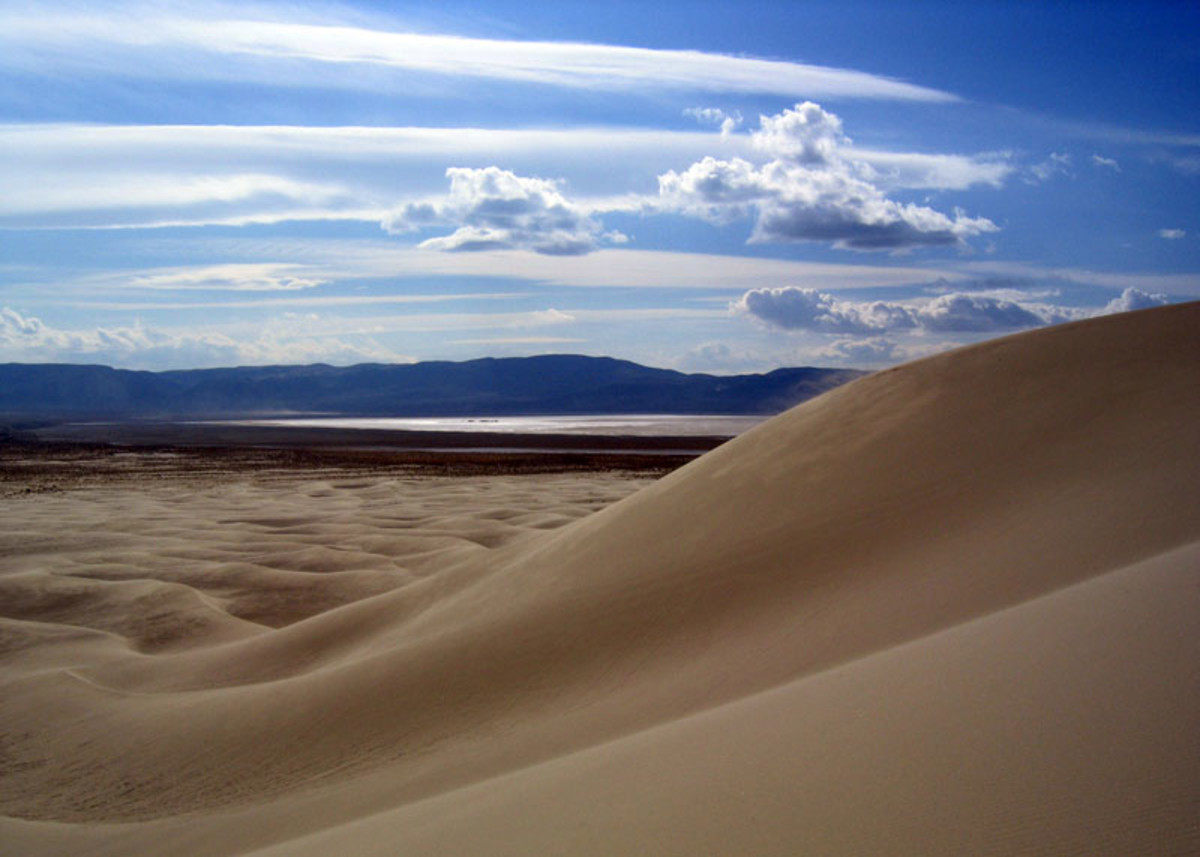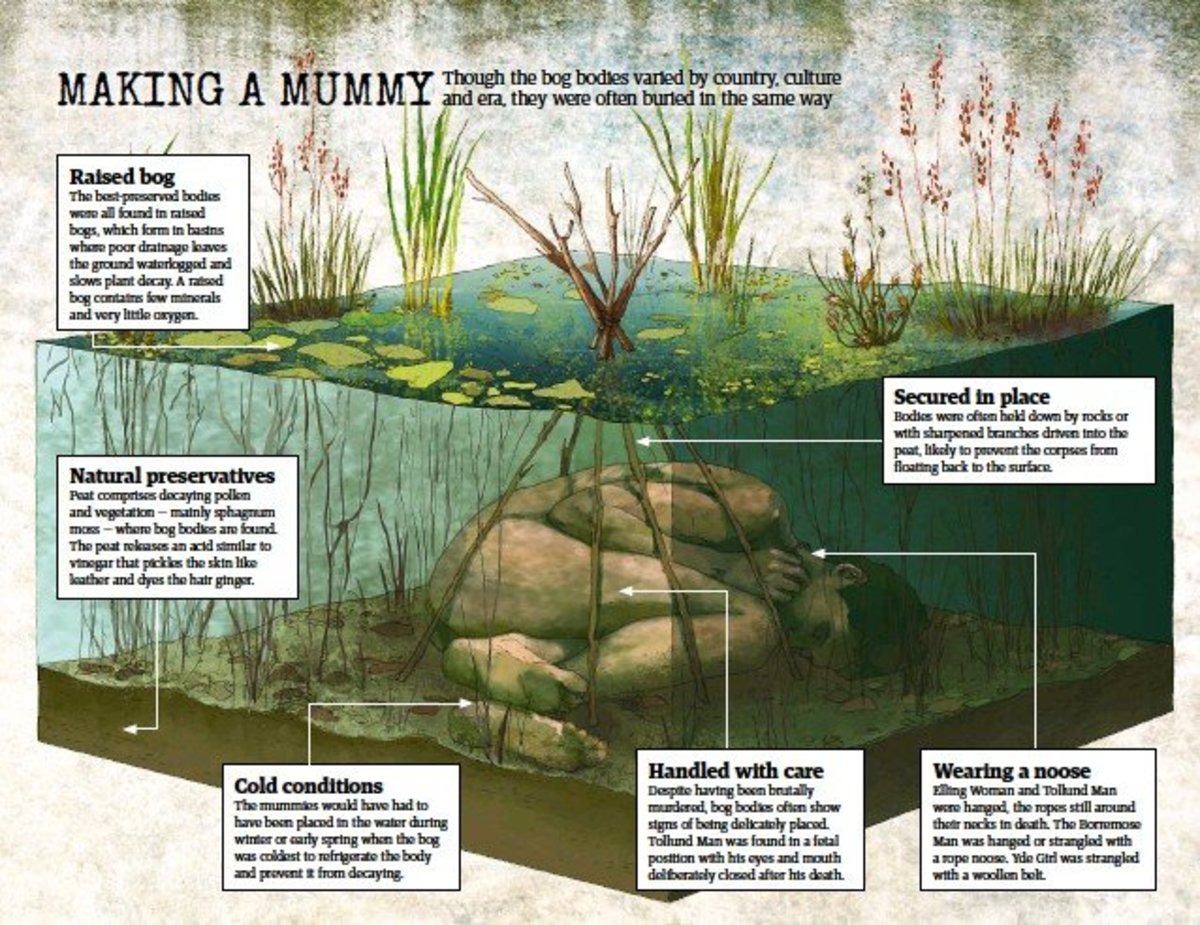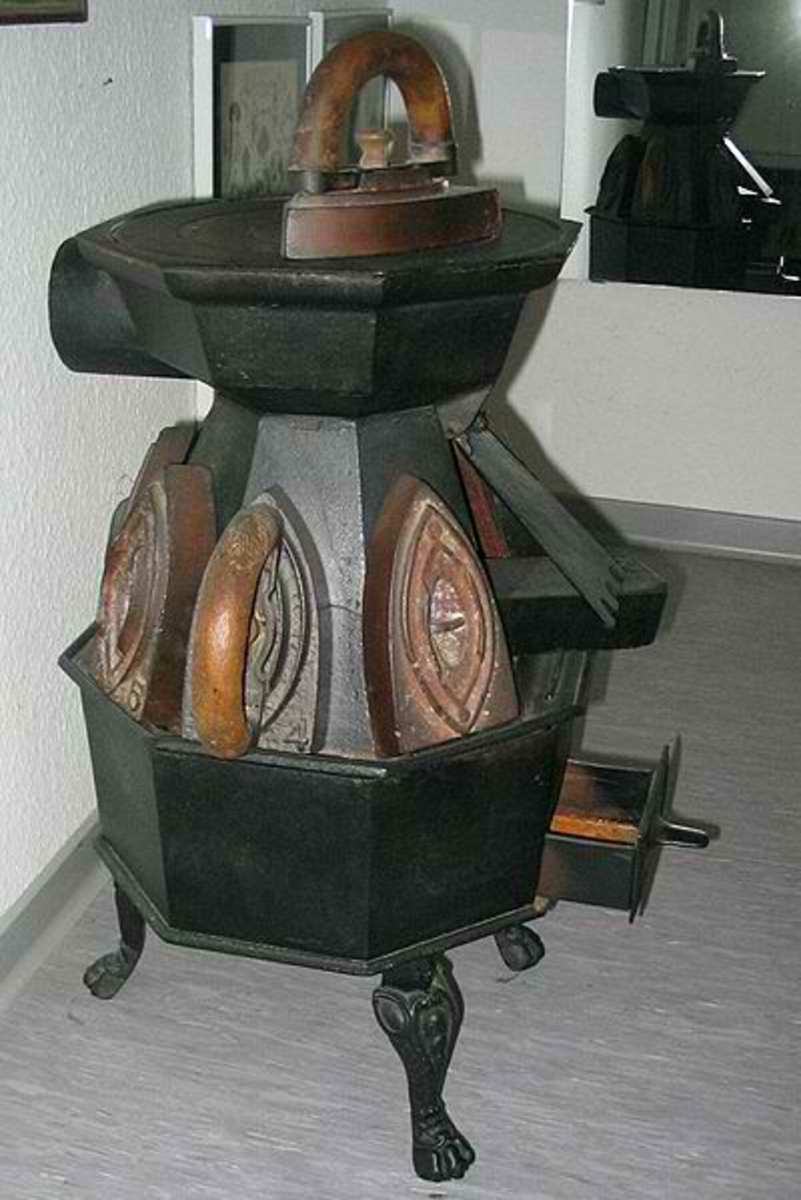Who are the Archaeologists and Why do they do what they do?
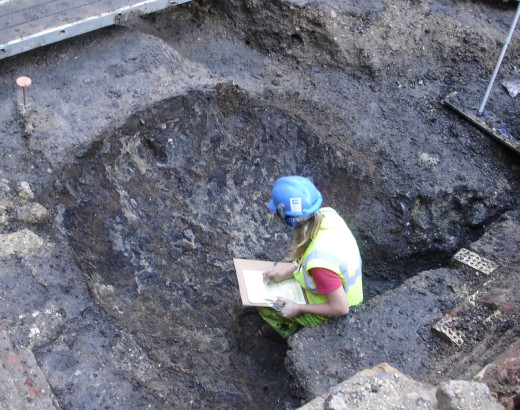
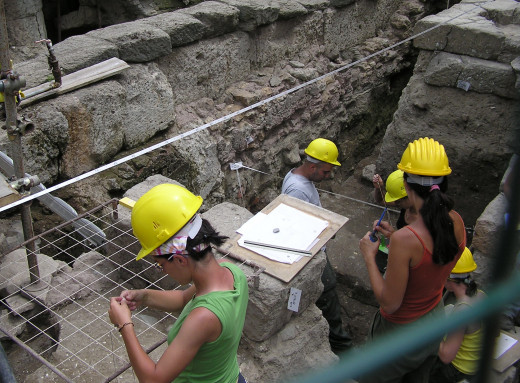
Who are the Archaeologists?
"It takes very special qualities to devote one's life to problems with no attainable solutions and to poking around in dead people's garbage: words like 'nosy', 'masochistic' and 'completely batty' spring readily to mind." (P.Bahn Bluff Your Way in Archaeology 1989)
Archaeologists look at the world in a somewhat skewed fashion, we see the patterns and layers which exist all around. Whether it is in the landscape or through event in time and as a result any conversation with an archaeologists often becomes a surreal experience.
A member of the public passing an ongoing excavation might see an strange array of holes in the ground dotted with the occasional person, often dirty (it's impossible to dig without getting dirty and one must always treat someone who is not dirty on dig with extreme suspicion), wearing hard hats and high vis vests (all in the interest of health and safety of course). These individuals may be hunched over a patch of dirt scraping away meticulously, with their trusty trowel (in the tea hut the conversation will inevitable turn towards whose trowel is the most worn - the more worn the more kudos), others will be clutching clipboards recording furiously and others will be measuring, surveying and drinking tea. If the passerby is lucky snatches of conversation might float their way such as, "where's my bloody trowel" followed by "have you checked the spoil heap".
It is a strange world this type of archaeologist inhabits but it should be noted that not all archaeologists live in holes in the ground and not all have beards and some are even quite clean. Archaeologists come in many shapes and forms.
Nowadays archaeologists can be found in a myriad of places depending on their speciality, location and need for money. Some large companies in the mining or construction industries will sometimes have an archaeologist on their staff - these archaeologists are often sneered at, after all they are working for the enemy but more than likely any ill feeling is due to envy. Getting paid a regular and decent salary is top of the wish list for any archaeologist (they will deny this).
Other types of archaeologists can be found in museums, universities, colleges, science companies, heritage bodies, local councils and then there are the independents who tender out their own archaeological services. There are specialists for every aspect of archaeological study. As a subject archaeology spans a wide range of other disciplines such as biology, geology, physics, chemistry, history, geography and so forth. Wherever there is heritage to researched, preserved and protected you will find an archaeologist.
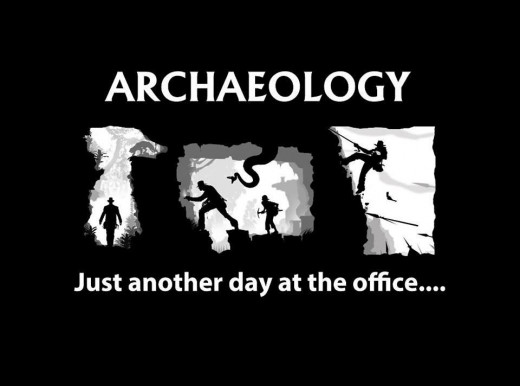
The Field Archaeologist
The most common variety of archaeologist is the field archaeologist, this particular brand can be found in almost all institutions. The field archaeologists can be someone who digs, but not always, or it can be someone who surveys and records what they see and can measure. The main prerequisite is that they get out of the office on a regular basis and into the open air. It doesn't even have to be in the countryside, field archaeologists can easily be found in urban areas too.
It is they who collect the reams of data which form the basis of archaeological theories on the past. The quality of the data is often reflected in the quality of the theory.
"The prime duty of the field archaeologist is to collect and set in order the material with not all of which he can himself deal at first hand. In no case will the last word be with him; and just because this is so his publication of the material must be minutely detailed, so that from it others may draw not only corroboration of his views but fresh conclusions and more light." (L. Woolley Digging up the Past 1930).
Most students begin their archaeological studies with romantic notions of being a field archaeologist, images of Indiana Jones and Lara Croft filling their nightly dreams. Not to burst anyone's bubble but the reality is considerably different from Hollywood's concept of what an archaeologist does (Indiana Jones and Lara Croft are nothing more than treasure hunters - Angelina Jolie should know better). The work of a field archaeologist is painstaking, accuracy is important and as a result what appears to be a simple job on paper can end up taking far longer than imagined.
"Field archaeologists tend to get sunburn, insect bites, blistered hands/knees/feet, frequent hangovers, and the runs." (P.Bahn Bluff your way in Archaeology 1989)
Of course all of this begs the question...
Why do we do Archaeology?
If you had a roomful of archaeologists and you asked each of them why do they study archaeology, most will speak with enthusiasm about their passion for the past or their desire to contribute to our knowledge of the human past (never, ever mention dinosaurs, that is another entirely different discipline). BUT, there are other reasons, often unspoken and never admitted in public.
Ultimately archaeologists are nosy people (who isn't?) however we prefer to rummage around in the rubbish of the past rather than of the present day (there are a group of archaeologists who do excavate modern rubbish dumps...). Some people do it for the fun of it (yes, this is possible). Some even pay for the privilege of joining an excavation, to have a holiday with a difference, a unique adventure holiday to have your work colleagues green with envy. Certain undergraduate students take the archaeology option because they are under the impression it is a 'easy' subject they can cruise through - these students don't last long. Those that go onto to do a Masters or Phd are usually those who are not really sure what to do next.
Some misguided folk even think they can not only make a living but also a career out of the subject. Both are possible provided your material requirements are minimal (archaeologists have a fondness for the Charity/thrift shop). Only in rare cases does the archaeologist become rich or famous - these are not reasons for taking up the discipline - pick another one!
If you want a career and a steady income be prepared to put in the hard yards, choose a speciality in the sciences, IT or look towards heritage management. In todays world these are the growth areas.

Collective reasons for doing Archaeology.
The previous section discussed the individual reasons for doing archaeology such as curiosity. For example, why was Stonehenge built? What was it's purpose? The answering of these types of questions are good reasons to study archaeology but there are others.
- Tourism - there are many examples of this around the world. The previously mentioned Stonehenge is one, the pyramids in Egypt or Macchu Pichu are all well known sites frequented by tourists from all over the world providing revenue to a region and the body/institution which manages it. Regardless of how we might feel about the apparent exploitation of these places it is in these groups interest to maintain and preserve these sites as well as providing new opportunities for archaeological study.
- Validation of religious beliefs - a difficult topic to discuss it is nonetheless a real reason why some archaeology is done in certain regions of the world. The most commonly known is of course Biblical archaeology where the hunt for important sites mentioned in the Bible continues. In the past archaeology has been used by some who wished to validate their behaviour towards certain groups of people - Hitler used archaeological discoveries to justify not only his idea of Aryan supremacy but also the subjugation of the Jewish people.
- To prove the truth of myth - wherever there are stories about the past there will be someone attempting to prove the story true. King Arthur is the one which springs readily to mind, questions such as where is Avalon? Where is the site of Camelot? Have all been used as the basis for both archaeological and historical studies.

Some Useful Links
This is not an exhaustive list but just a few useful places to visit online. Most local archaeological societies have websites now and are a good place to start if you too are contemplating a future in archaeology.
Council for British Archaeology
British Archaeological Society
Archaeological Institute of America
Society for American Archaeology
Society for Archaeological Sciences
Geological Society of America - Archaeology Division
Biblical Archaeology Review Magazine

